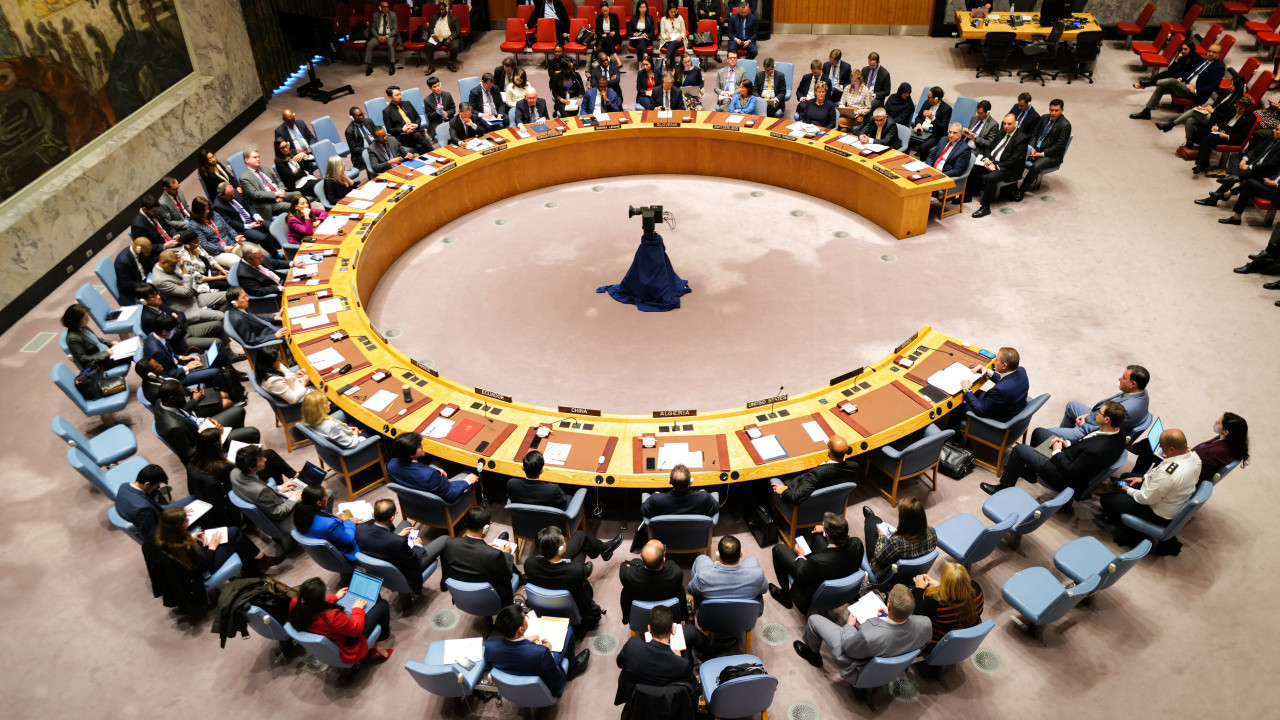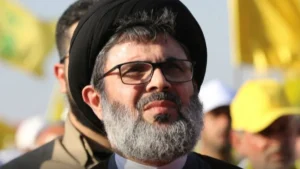
A The resolution, authored by the United States, received 14 votes in favor and one abstention from Russia.
This is the first Security Council resolution on a ceasefire plan aimed at ending the eight-month war between Israel and Hamas in Gaza.
After the approval of the resolution, the American ambassador to the UN, Linda Thomas-Greenfield, put pressure on the Islamist group Hamas, assuring that “Israel has already agreed to this agreement”.
“Colleagues, this Council sent a clear message to Hamas today: Accept the ceasefire agreement that is on the table. Israel has already agreed to this agreement. And the fighting could stop today if Hamas did the same. I repeat: the fighting they can stop today”, stressed the diplomat, insisting that “Hamas must accept” the proposal.
Although Biden referred to the plan as an Israeli proposal, following his announcement, Israeli Prime Minister Benjamin Netanyahu indicated that its conditions for ending the war — including “the destruction of Israel’s military and government capabilities” Hamas” and the release of all the hostages — had not changed.
Furthermore, Israeli officials argued that Biden’s description of the Israeli offer was inaccurate or that there were “gaps” between the version presented by Washington and what Israel actually proposed.
Russia, when justifying its abstention in today’s vote, criticized the “lack of clarity” about whether Israel agrees or not with the agreement, exposing the “contradictions” between what Washington and Tel Aviv say.
“We are convinced that the Security Council should not sign agreements with vague parameters and without guarantees, (…) without the slightest clear understanding of how the parties themselves behave”, defended the Russian ambassador, Vasily Nebenzya.
“The Council’s adoption of a new document whose content raises enormous questions, even without a clear demand on the parties for an immediate and permanent ceasefire, undermines its authority as the main body for maintaining international peace and security,” he further alleged.
At today’s meeting, Israel did not directly respond to Russia’s question about whether it supports the agreement, but stressed that it is “committed to releasing all hostages, destroying Hamas’ military and government capabilities and ensuring that Gaza does not pose a threat to Israel in the future.” .
On May 31, Biden announced what he described as a new Israeli proposal, calling it “a roadmap for a lasting ceasefire and the release of all hostages” consisting of three phases.
The first of which would include, among other things, “a total and complete ceasefire”, the withdrawal of Israeli forces from “all populated areas of Gaza” and the release of “a number of hostages — including women, elderly, injured — in exchange for the release of hundreds of Palestinian prisoners.”
This first phase is expected to last six weeks, during which Israel and the Islamist group Hamas would “negotiate the necessary agreements” to move to the second phase, which would see the “release of all remaining living hostages” in exchange for the withdrawal of Israeli forces from Gaza.
The third phase would include a “major reconstruction plan for Gaza” and the return of “any remains of hostages who were killed” to their families.
The proposal says that if negotiations take more than six weeks for the first phase, the ceasefire will continue while negotiations take place.
The resolution approved today by the Security Council rejects any attempt at demographic or territorial change in the Gaza Strip, including any actions that reduce the territory of the enclave.
The text also reiterates the Council’s unwavering commitment to the “vision of a two-State solution, where two democratic States – Israel and Palestine – live side by side in peace, within secure and recognized borders, consistent with international law and resolutions relevant UN documents”, and, in this regard, “highlights the importance of unifying the Gaza Strip with the West Bank under the Palestinian Authority”.
Although the US ambassador insists that Israel approved the agreement, it is not yet certain whether Tel Aviv and Hamas fully agree with the three-phase ceasefire plan, but the resolution’s strong support in the UN’s most powerful body puts pressure on additional burden on both parties to approve the proposal.
Widely criticized for having blocked several draft resolutions calling for a ceasefire in Gaza, the United States, Israel’s steadfast ally, continued to justify itself in recent months, ensuring that a truce could only result from an agreement on the ground.
[Notícia atualizada às 22h17]
Read Also: UN Security Council votes today on US ceasefire proposal

Download our free App.
Eighth consecutive year Consumer Choice for Online Press and elected product of the year 2024.
* Study by e Netsonda, Nov. and ten. 2023 product of the year – pt.com
Source: https://www.noticiasaominuto.com/mundo/2578210/conselho-de-seguranca-da-onu-apoia-proposta-de-biden-para-cessar-fogo



